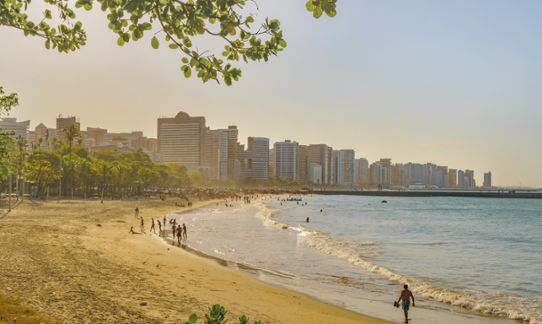Fortaleza is a city on the Atlantic coast in the north-east of Brazil with 2.6 million inhabitants (close to 4 million in the greater Fortaleza area). Situated close to the equator, its climate is tropical and hot all year round.
“The climate and how people adapt and respond to extreme situations differ from here in Sweden and in general throughout Europe. We’re now going to study the problems they have and share knowledge with one another,” Jorge Amorim explains. He is the research leader for ‘urban air quality and climate’ at SMHI.

Surveys show variations
In a number of climate projects, especially those focusing on heatwaves, SMHI’s researchers have developed tools for mapping how heat is distributed in cities; for example, through radiation modelling. Even though cities are generally hotter than the surrounding rural areas, there are major local variations within the cities themselves. Through the introduction of cooling environments such as tree planting or water surfaces, the perceived temperature can be reduced.
“We want to understand their needs and how they are approaching the problem. They will have the opportunity to test our modelling tools and we will look into how they can use and benefit from the information that will be generated. At the same time, we will learn from their knowledge of heatwaves and how cooling environments can be created. So it’s a mutual exchange”, says Jorge Amorim.
Knowledge exchange between countries
But despite the fact that climate, culture and familiarity with hot temperatures differ from one country to the other, Jorge Amorim believes that Sweden has a great deal to learn from other parts of the world in what concerns adapting to extreme weather events and climate change.
“Heatwaves are a risk, and we need to adapt to them. In this area, we can learn from other, more experienced countries."
The project has just begun, and contact is now being established with relevant representatives from the municipality and researchers from universities in Fortaleza. SMHI collaborates with the Swedish company “U&We”, which has a long-established network in Brazil.